Need total financial strategy
On April 16, 2025, the seminar "International experience and the role of the banking system in the financial center" organized by Banking Times attracted great attention from managers, experts, researchers, businesses, commercial banks, and the domestic financial community.
Accordingly, amid the increasingly deep flow of financial globalization, Vietnam is facing a historic opportunity to break through and assert its role as a regional financial center. However, the opportunity will only be potential without the driving force from a strong financial structure in which the banking system plays a key role.
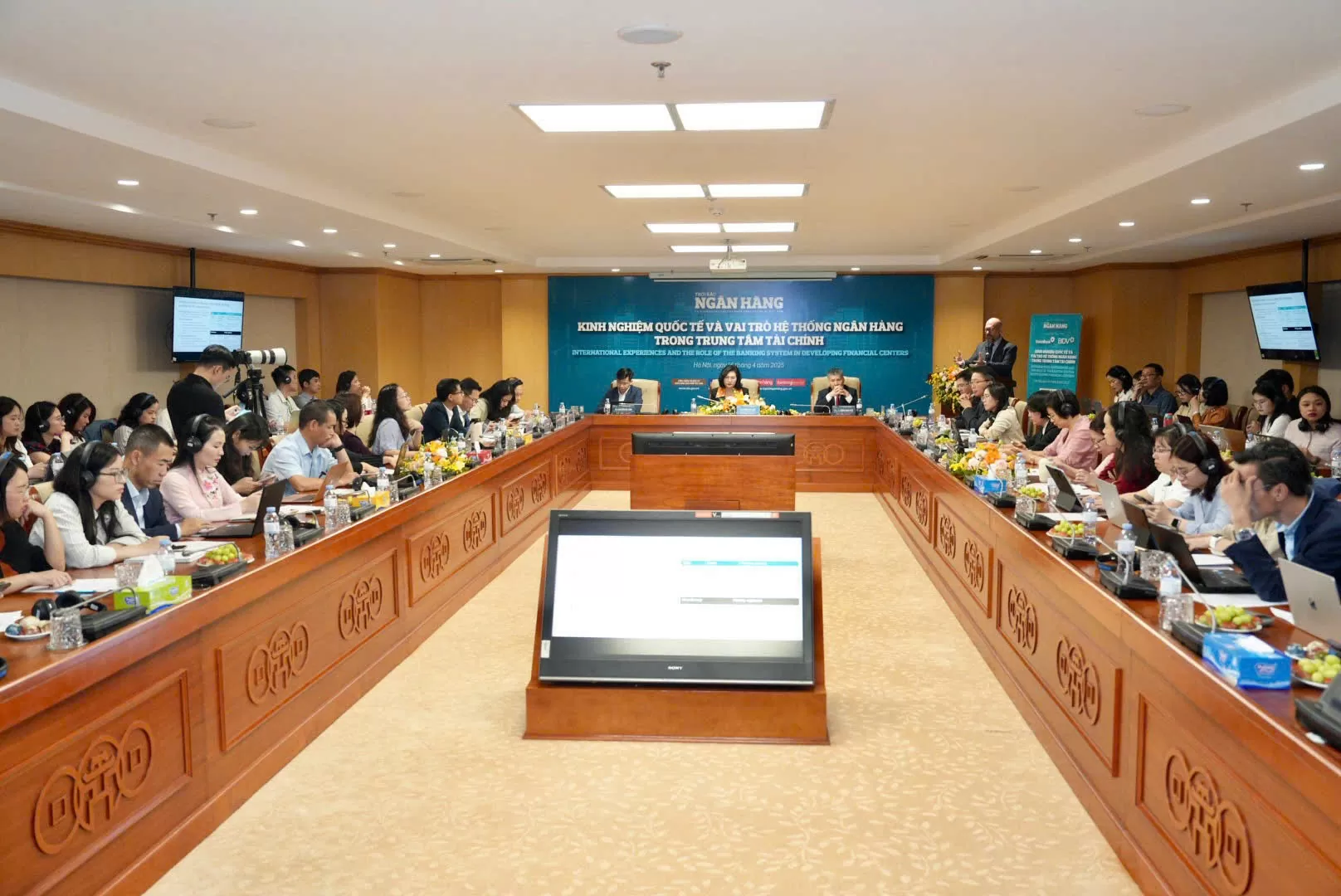 |
| Seminar “International experience and the role of the banking system in the financial center” organized by Banking Times. Photo: Hoang Giap |
The event raised a question: To form a financial center of international stature, Vietnam needs a comprehensive strategy, with the banking industry as the core, not only leading capital flows, but also the operating system of national financial thinking.
Speaking at the opening of the seminar, Ms. Le Thi Thuy Sen, Editor-in-Chief of Banking Times, emphasized that the construction of an international financial center has been identified by the Party, State, National Assembly and Government as one of the institutional breakthroughs, a policy to liberate resources, promote the transformation of the growth model associated with economic restructuring, to improve productivity, efficiency and competitiveness, bringing Vietnam to a higher level in the global economic value chain.
Implementing the orientation of the Party and the State, management agencies, financial and banking organizations and the expert community are working together to build a strategic vision for an international financial center in Vietnam. “In that process, the banking system, as the lifeblood of the economy, is identified as a pioneering force, both creating a stable foundation and promoting innovation in the national financial ecosystem,” said Ms. Le Thi Thuy Sen.
The Editor-in-Chief of Banking Times emphasized that the event was organized to realize three important goals: exchanging international experiences in building financial centers, focusing on core topics; clarifying the role and mission of the banking system in the process of building a financial center in Vietnam...
“There is no model that is best for any country because the choice of model depends on the economic and social conditions of each country. Therefore, Vietnam also aims to build an international financial center in accordance with current policies and its own economic and social conditions. The event will be a place where multi-dimensional perspectives, profound international experiences and many initiatives in building a regional and international financial center in Vietnam converge,” Ms. Le Thi Thuy Sen affirmed.
According to MSc. Luu Anh Nguyet, Deputy Head of the Financial Market Development Department, Institute of Economic and Financial Policy and Strategy, Ministry of Finance , Vietnam has many favorable factors to build an international financial center. These are its strategic geographical location and deep economic integration. In addition, Vietnam is also actively improving its institutions, legal system, investment environment and macroeconomic stability.
“ Ho Chi Minh City and Da Nang are two selected locations that currently have important factors to build international financial centers. In particular, Ho Chi Minh City has modern financial market institutions, a dynamic economy, and has been on the list of financial center rankings (GFCI) since 2022,” MSc . Luu Anh Nguyet informed.
Despite many advantages, the representative of the Institute of Strategy and Economic Policy also pointed out certain challenges when Vietnam builds a regional and international financial center. For example, infrastructure and institutions. Accordingly, the domestic socio-economic infrastructure has made positive contributions but is still lacking in synchronization, traffic is overloaded, and there is an imbalance between types of transportation.
In addition, the legal framework has not met international standards, there is a lack of regulations on cross-border transactions and investor protection. Along with the increasingly fierce regional competition because other international financial centers have strong foundations and attractive attraction policies. In particular, Vietnam has not fully liberalized finance, has limitations in technology and cybersecurity...
Faced with that reality, MSc. Luu Anh Nguyet said that Ho Chi Minh City is suitable for the semi-classical model, linking trade, technology, capital market and financial services, while Da Nang is suitable for the new generation model, integrating free trade zones, green financial services, risk management and foreign exchange.
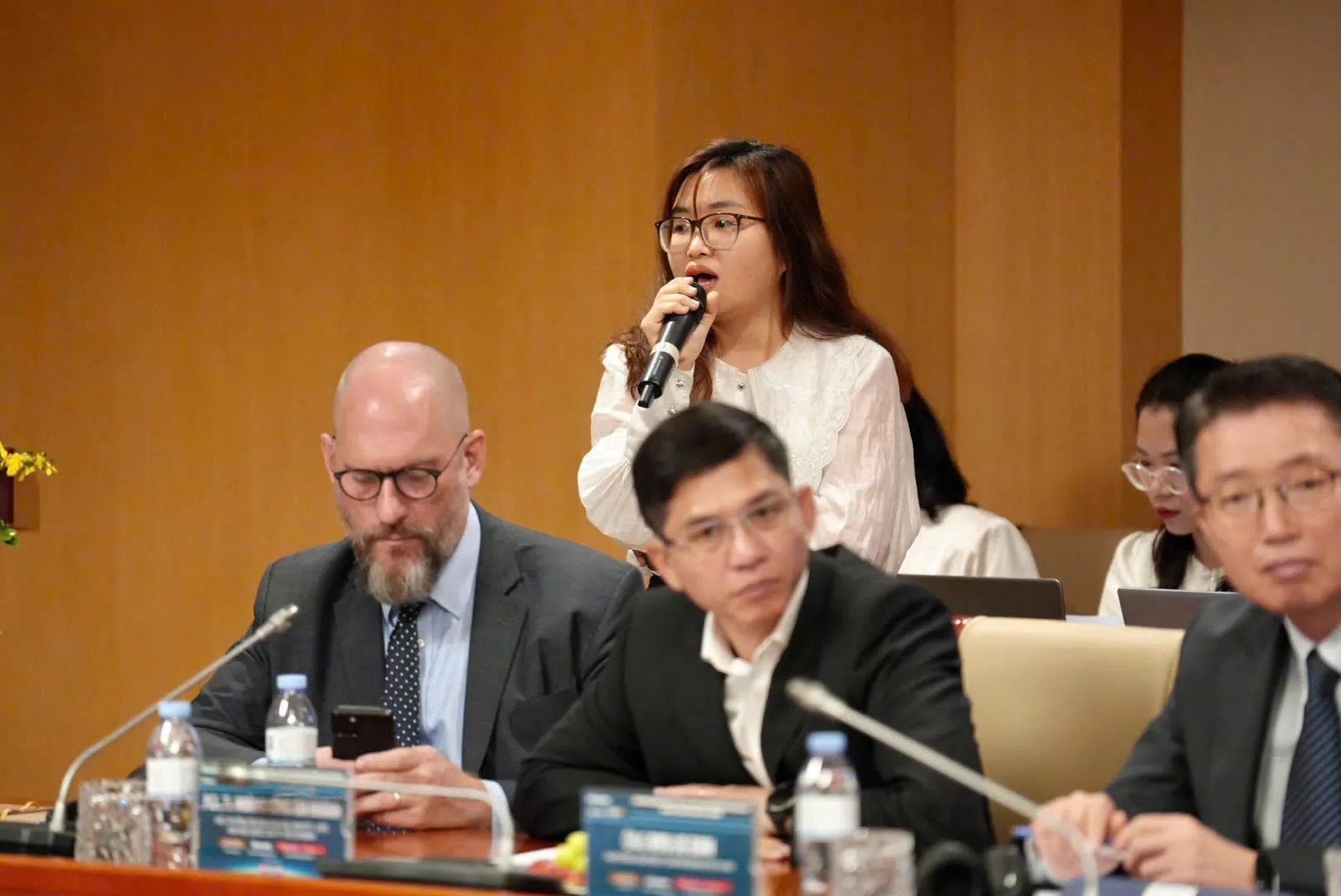 |
| MSc. Luu Anh Nguyet, Deputy Head of the Financial Market Development Department, Institute of Strategy and Economic and Financial Policy, Ministry of Finance, speaking. Photo: Hoang Giap |
To successfully build an international and regional financial center, the representative of the Institute for Economic Strategy and Policy said that it is necessary to perfect the institution in a flexible and modern way such as: building a transparent legal framework, in line with international practices, allowing testing of new models such as fintech, digital platforms. At the same time, applying the sandbox model like Singapore with a fast licensing process and good investor protection. At the same time, it is necessary to strengthen risk monitoring according to international standards, ensuring market stability and transparency.
In addition, developing financial and technological infrastructure; including building a modern, globally connected payment system, developing a digital financial zone, supporting startups and fintechs to test new services; applying AI, Blockchain, Big Data in transactions, data management and financial security.
Regarding tax policy, it is necessary to exempt/reduce corporate income tax and personal income tax for organizations and individuals operating in international financial centers. It is possible to learn from the experience of some countries such as Türkiye, which has exempted corporate income tax, banking transaction tax and insurance for businesses in international financial centers. At the same time, it is necessary to propose outstanding incentives for foreign banks to move their headquarters and branches to Vietnam.
Above all, it is necessary to simplify administrative procedures, reduce registration and licensing procedures for foreign financial institutions; develop high-quality human resources, cooperate with universities and research institutes to provide in-depth training in finance, technology, data analysis, etc. "It is necessary to attract international experts in the fields of banking, finance, fintech; apply special visa policies for global talents working in the field of digital finance" - MSc. Luu Anh Nguyet expressed her opinion.
Access to low-cost international capital flows
According to Deputy Director of State Bank Region 2 Nguyen Duc Lenh, in the process of building and developing an international financial center in Ho Chi Minh City, the banking sector plays an important role. That is the role of building and creating a legal environment, including building a monetary policy mechanism and banking activities suitable to the purpose and development requirements of the international financial center, ensuring the promotion of the activities of financial institutions in the banking sector.
“The development of financial institutions including commercial banks, finance companies, financial leasing companies, etc. in the international financial center will ensure effective operations, competition and development, thereby becoming a driving force for domestic banking activities,” said Mr. Nguyen Duc Lenh, adding that capital exploitation and effective use (domestic and foreign) not only promotes the development of these markets, but also contributes to creating growth momentum, developing the ecosystem and groups of major service industries of the city: Transportation and logistics, science and technology and innovation, communications, healthcare, education, trade and retail, real estate and tourism, etc.
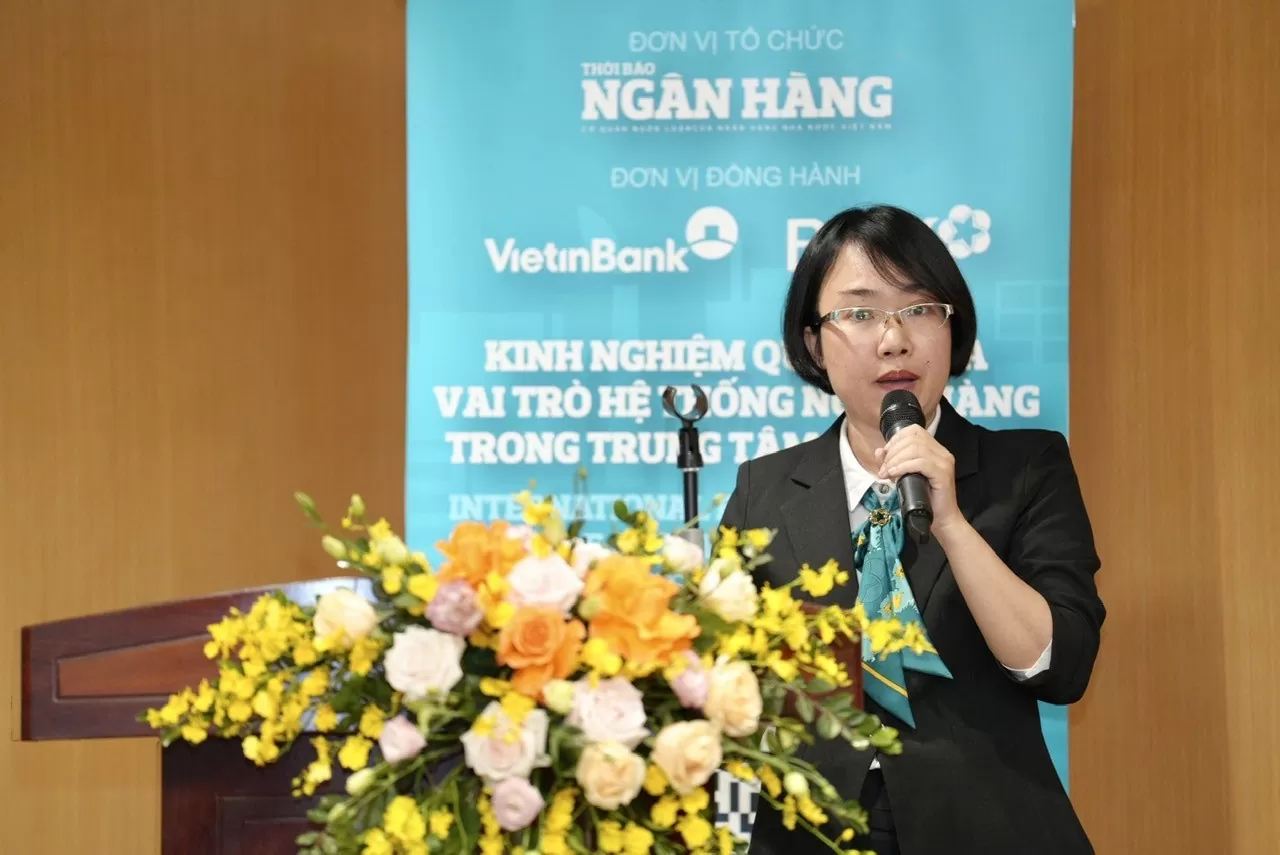 |
| Ms. Truong Thi Thu Ba, Deputy Director of BIDV Financial Institutions Department, spoke at the event. Photo: Hoang Giap |
Sharing about opportunities for domestic financial institutions, Ms. Truong Thi Thu Ba, Deputy Director of the Financial Institutions Department, Joint Stock Commercial Bank for Investment and Development of Vietnam (BIDV) said that establishing an international and regional financial center in Vietnam will be an opportunity for Vietnamese banks to attract international capital flows and access low-cost capital sources. At the same time, expanding the market and upgrading the financial services ecosystem; standardizing according to international practices, enhancing credibility and capital mobilization capacity. In addition, banks can also accelerate digital transformation and shape the platform banking model.
According to BIDV representative, opportunities always come with challenges such as multi-level competitive pressure with international financial institutions; gaps in data infrastructure, technology and digital integration. Therefore, Vietnamese banks face huge competition, and are likely to lose right at home. Besides, there is the risk of "internationalization pressure" but not enough "internationalization of capacity". Finally, there is the challenge of building market trust and policy consistency.
Therefore, BIDV proposes that, on the part of the National Assembly and the Government, the Special Resolution on International Financial Centers should have a long-term orientation with a specific institution and be approved soon. At the same time, it is necessary to organize delegations to survey international financial centers around the world to learn from experience. There is a model that is close to Vietnam and has just been formed, which is GIFT City in India. In the process of policy making, it is necessary to consult, listen to and absorb the opinions of all parties. At the same time, take advantage of human resources and infrastructure in Vietnam at low cost to deploy services suitable for Vietnam.
For the State Bank, there needs to be a flexible pilot mechanism, regular policy dialogue, and a legal sandbox for services such as digital banking, digital assets, green finance, international payments, etc. For the Banking Association, it is necessary to consult member banks to understand the difficulties in the application process. In addition, it is necessary to disseminate, train, and share international practices, new technology trends, etc. for members.
From the perspective of a commercial bank, BIDV determines that it will need to take advantage of human resource and infrastructure costs to provide financial services to the international financial center; have a strategy to participate proactively, focus on, and improve capacity. In addition, it will proactively cooperate internationally, connect to the global financial network, co-create institutions, propose product models, and build and test new models.
Vietnam has the aspiration to become a regional and international financial center, that is clear. But the aspiration needs a machine to operate. And that machine, none other than the banking system, where intelligence, technology, trust and strategic vision converge. |
Source: https://congthuong.vn/trung-tam-tai-chinh-ngan-hang-viet-lam-gi-de-khong-thua-tren-san-nha-383326.html



![[Photo] Panorama of the Opening Ceremony of the 43rd Nhan Dan Newspaper National Table Tennis Championship](https://vphoto.vietnam.vn/thumb/1200x675/vietnam/resource/IMAGE/2025/5/19/5e22950340b941309280448198bcf1d9)
![[Photo] Close-up of Tang Long Bridge, Thu Duc City after repairing rutting](https://vphoto.vietnam.vn/thumb/1200x675/vietnam/resource/IMAGE/2025/5/19/086736d9d11f43198f5bd8d78df9bd41)
![[Photo] President Luong Cuong presents the 40-year Party membership badge to Chief of the Office of the President Le Khanh Hai](https://vphoto.vietnam.vn/thumb/1200x675/vietnam/resource/IMAGE/2025/5/19/a22bc55dd7bf4a2ab7e3958d32282c15)

![[Photo] General Secretary To Lam attends the conference to review 10 years of implementing Directive No. 05 of the Politburo and evaluate the results of implementing Regulation No. 09 of the Central Public Security Party Committee.](https://vphoto.vietnam.vn/thumb/1200x675/vietnam/resource/IMAGE/2025/5/19/2f44458c655a4403acd7929dbbfa5039)
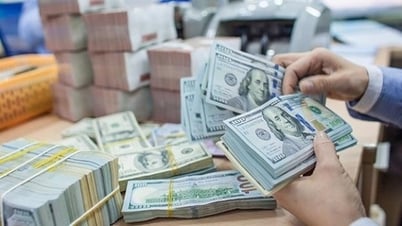


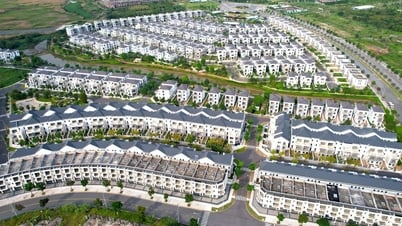









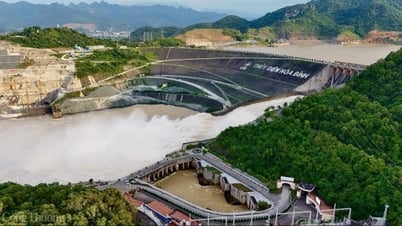
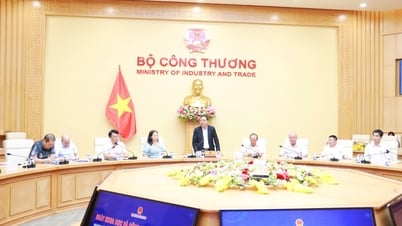
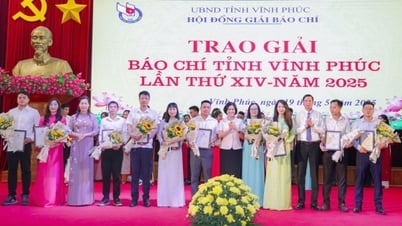

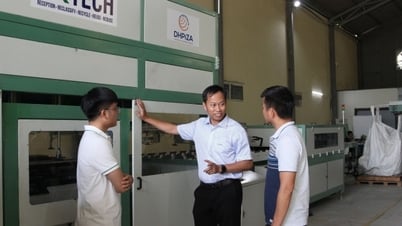
![[Photo] Prime Minister Pham Minh Chinh inspects the progress of the National Exhibition and Fair Center project](https://vphoto.vietnam.vn/thumb/1200x675/vietnam/resource/IMAGE/2025/5/19/35189ac8807140d897ad2b7d2583fbae)















































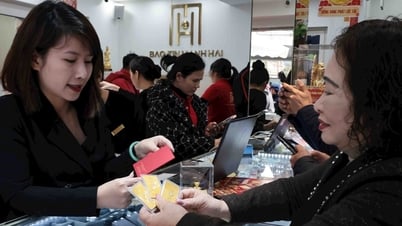





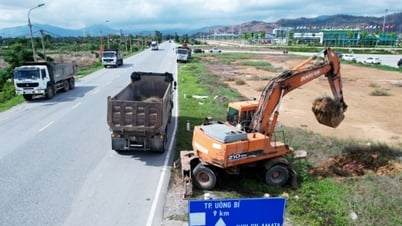







![[VIDEO] - Enhancing the value of Quang Nam OCOP products through trade connections](https://vphoto.vietnam.vn/thumb/402x226/vietnam/resource/IMAGE/2025/5/17/5be5b5fff1f14914986fad159097a677)



Comment (0)